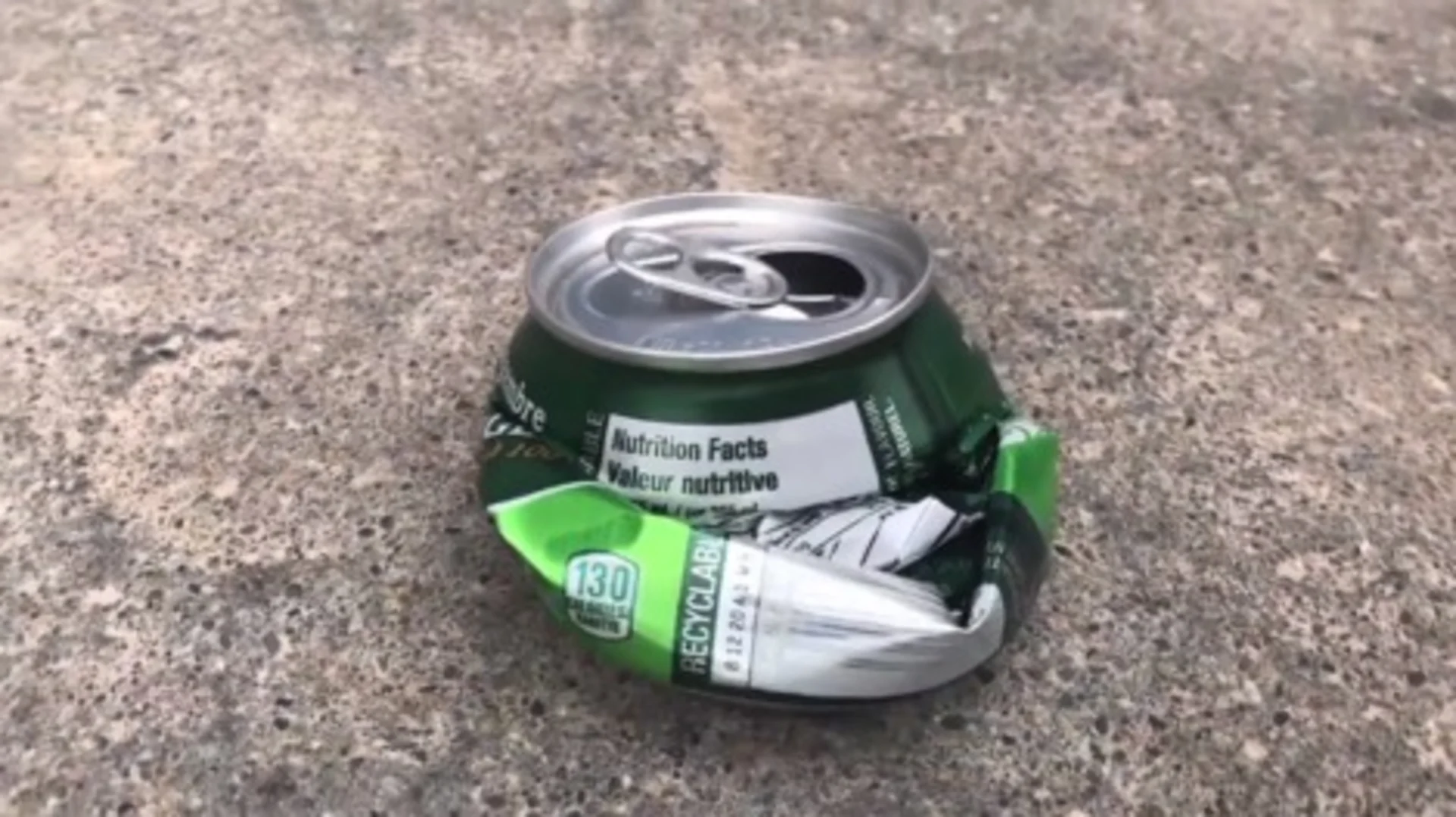
Why you shouldn't crush aluminum cans
Don't crush that can!
There's more to recycling than simply throwing things into a blue bin, according to a report published by Popular Science in 2019.
The article lays out some best practices that help avoid contamination.
Proper recycling practices are becoming a growing concern in both Canada and the U.S.
China and India, two countries that used to be large buyers for North American recyclables, have pulled back, citing the products are too heavily contaminated.
RELATED: Staggering 90 per cent of plastic is not recycled in Canada
PopSci spoke with Susan Robinson, a senior director of sustainability and policy for Waste Management, which operates 100 recycling facilities in North America.
According to Robinson, crushed aluminum cans are harder to sort at some locations, raising the risk of contamination.
They're also more prone to falling through gaps in sorting equipment and getting lost.
Cities that use single-stream recycling -- where residents throw everything into the same bin -- are better equipped to handle crushed cans.
Places that use multi-stream recycling -- where residents are expected to sort and separate their recyclables -- have difficulties processing crushed cans.
RELATED: Black plastic is a recycling nightmare. Here's why
PLASTIC IS A TRICKY ISSUE, TOO
Contrary to popular belief, not all plastics are recyclable -- and the types of plastics that are recyclable vary from community to community, according to the Canadian Plastics Industry Association (CPIA).
Manufacturers divide plastics into seven groups, with those labelled 1 and 2 the most widely recyclable.

"CPIA completes an annual 'Access' study of about 400 recycling programs across Canada to find out exactly what plastics municipalities collect for recycling," The CPIA says on its website.
VIDEO: 5 EVERYDAY ITEMS WE BET YOU DIDN'T KNOW YOU COULD RECYCLE
Researchers added, "we characterized 24 types of plastics containers and non-containers and found 70% of Canadians have access to programs that accept most plastic packaging containers – HDPE, PET, LDPE, polystyrene and PVC. More than this, 95% can recycle PET bottles (like pop, water and juice) plus HDPE (detergents, milk jugs and other cleansers) ... it's important to find out what you can recycle and check back because this can change."
Recycling methods vary from city to city, depending on the size and capabilities of their facilities. To find out best practices for your area, consult with your local municipality.
This article was originally published in March of 2019












